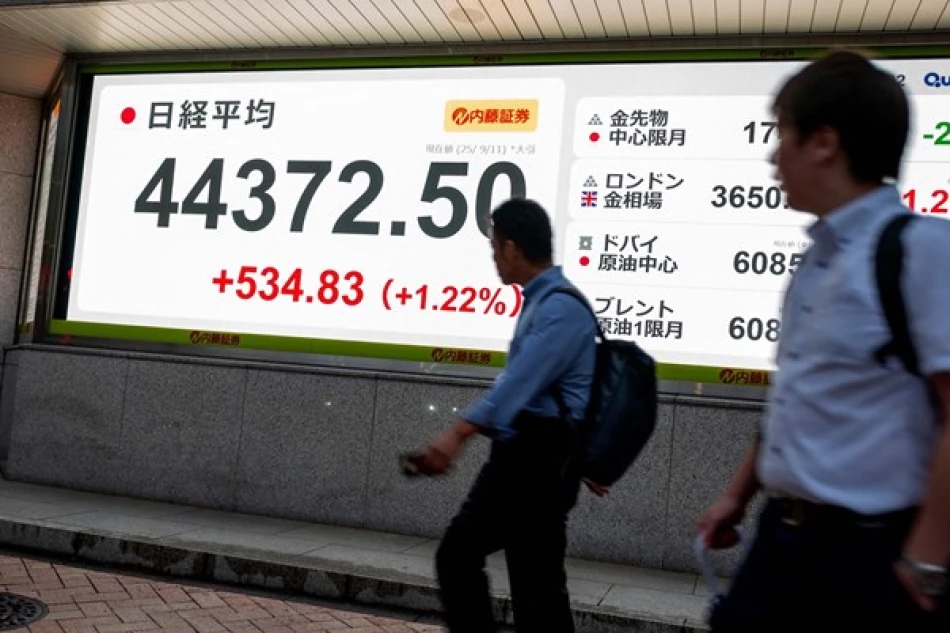
Japanese Nikkei Surges to Unprecedented Heights
Japan's Nikkei Hits Record Highs as Chip Rally Fuels Market Optimism
Japan's Nikkei 225 closed at a record high for the second consecutive session Friday, driven by semiconductor stocks that mirrored Wall Street's chip sector surge. The rally reflects growing investor confidence in both Fed rate cuts and Japan's position as a critical player in the global semiconductor supply chain, positioning Tokyo markets for potential sustained gains as monetary policy shifts favor risk assets.
Record-Breaking Performance Signals Market Momentum
The Nikkei climbed 0.89% to 44,768.12 points, after touching an intraday peak of 44,888.02 points—a 1.16% gain from the previous close. This marks the index's strongest weekly performance since mid-July, with a 4% surge over five trading days that demonstrates renewed appetite for Japanese equities.
The broader Topix index advanced 0.4% to 3,160.49 points, posting a solid 1.77% weekly gain that suggests the rally extends beyond large-cap stocks into Japan's wider market ecosystem.
Semiconductor Stocks Drive the Charge
Japanese chip-related companies led Friday's advance, capitalizing on overnight gains in U.S. technology stocks. Tokyo Electron surged 5.5%, while chip testing equipment maker Advantest gained 1.82%. These moves underscore Japan's integral role in global semiconductor manufacturing, particularly as companies like TSMC and Samsung expand production capacity.
SoftBank Group, the technology-focused conglomerate with significant AI and chip investments, reversed earlier losses to close up 1.82%. The turnaround reflects investor optimism about the company's exposure to artificial intelligence trends and semiconductor demand cycles.
Fed Policy Expectations Fuel Global Risk Appetite
Wall Street's record-setting performance Thursday provided the catalyst for Friday's Tokyo rally. U.S. inflation and unemployment data strengthened expectations for Federal Reserve rate cuts this month, potentially as early as the September 17-18 FOMC meeting.
Lower U.S. interest rates typically benefit Japanese exporters by weakening the dollar against the yen, making Japanese goods more competitive globally. Additionally, reduced yields on U.S. Treasuries often drive capital flows toward higher-yielding assets, including Japanese equities trading at attractive valuations.
Strategic Implications for Investors
Japan's market surge comes at a critical juncture for global investors seeking alternatives to expensive U.S. stocks. The Nikkei's price-to-earnings ratio remains below historical peaks, while corporate governance reforms and share buyback programs continue improving shareholder returns.
The semiconductor rally particularly benefits Japan, which supplies critical manufacturing equipment and materials to chipmakers worldwide. As AI demand drives semiconductor investment cycles, Japanese companies like Tokyo Electron and Shin-Etsu Chemical occupy strategic positions in supply chains that competitors cannot easily replicate.
For currency traders, the yen's recent stability against the dollar—despite Bank of Japan policy divergence—suggests foreign investment flows may continue supporting Japanese asset prices even as domestic monetary policy remains accommodative.
Most Viewed News

 Layla Al Mansoori
Layla Al Mansoori






